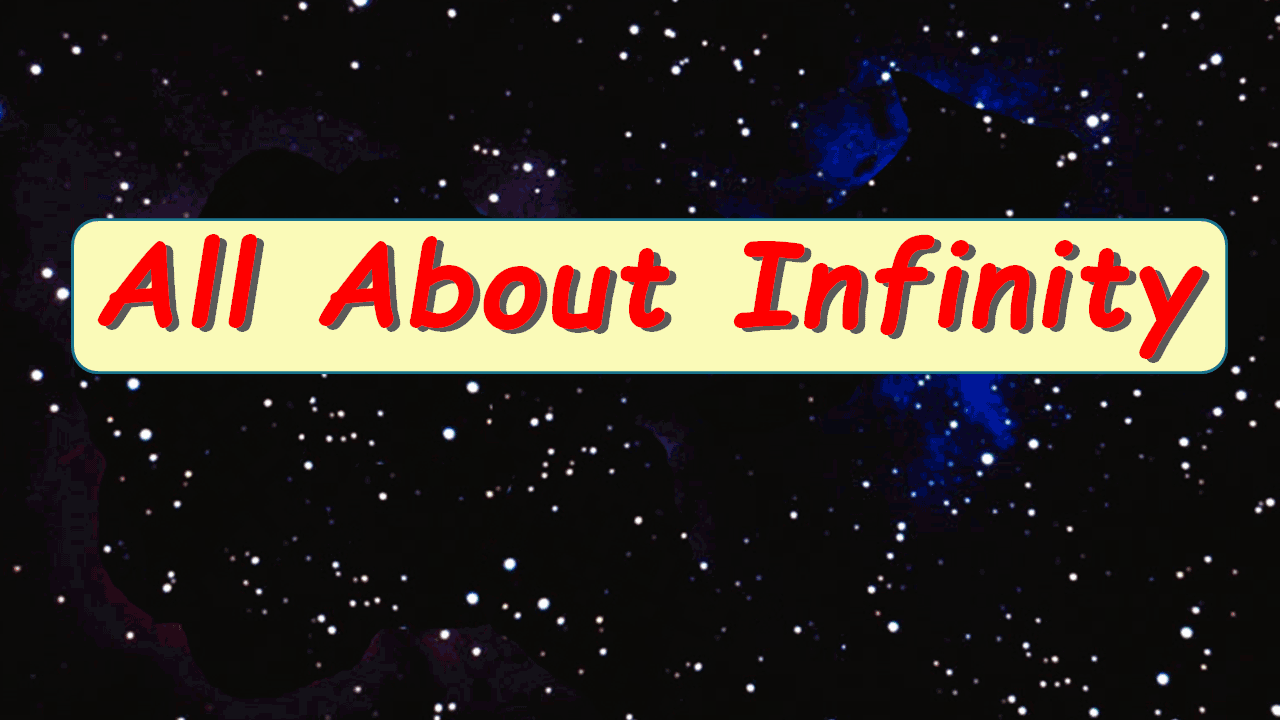“Can unending decimals like 0.333… and 0.999… be static unchanging things containing an actual infinity of digits?”
I think the simple answer is no. Mankind made up numbers, a fact that gets lost on human beings most of the time. There cannot be an infinity of any quantity in reality.
For example, could we claim there was an infinite number of apples in the universe? No, not really. But I think the real conundrum lies in the question, can there be a finite number of apples in the universe? The answer to that question is also no, believe it or not.
Think about it for a moment.
Even if we knew for a fact that apples only grow on Earth, the quantity of apples could never be defined as finite in the universe. They could however, be described as finite in time.
You can only describe the rate of change in the quantity of apples on earth, which is either rising, or falling. Freeze time and the number of apples becomes finite. Start time and the answer is no longer definable if finite terms. New apples are being created every day, and existing apples are being destroyed everyday.
The quantity of apples in the universe is always in a state of flux. There is not a finite number of apples in the universe, nor is there an infinite number of apples in the universe, because the real answer is time dependent.
I suppose you could have a condition where the number of apples being destroyed is equal to the number of apples being created, but that’s still a dynamic state of change and not really finite as far as individual apples are concerned.
The only way to have a finite number of apples in the universe is to stop time. And that, obviously, is impossible.
Digits suffer the same fate, because they don’t exist until we make them exist. After all, we invented numbers. They only exist in our imagination, and they don’t physically exist until we perform a calculation and can physically see them. We can obviously deduce an endless potential to generate numbers, but like an apple, we also know it is somewhat impossible to yield an infinite number of either. That answer is always time dependent.
We could say on Tuesday, March 8th, at precisely 3pm, there were exactly 183,723,232,102 apples, but that would be about it. Only if we had some means of instantaneously counting every single apple on Earth all at once. Not possible though, is it?
Same holds true for everything in the universe.
There is no such thing as an infinite quantity of anything in the universe, nor is there such thing as a finite quantity of anything in the universe.
Change is the constant.
What is infinity?
What is finite?
I don’t think anyone has a clue. We hold to colloquial meanings, and that’s not very scientific.
We cannot prove endlessness for the universe, nor can we prove a limit.
But, we do know 1 and 0 is a finite value. And mathematically speaking, our existence is the difference between something and nothing.
The question in my mind isn’t whether the universe is infinite or finite, it’s what does either mean? In my view, neither state is defined. Infinity certainly has nothing to do with quantities, anymore than finite. They describe the state of numbers. Static, versus dynamic values. Our universe is clearly observed as dynamic, not static.

